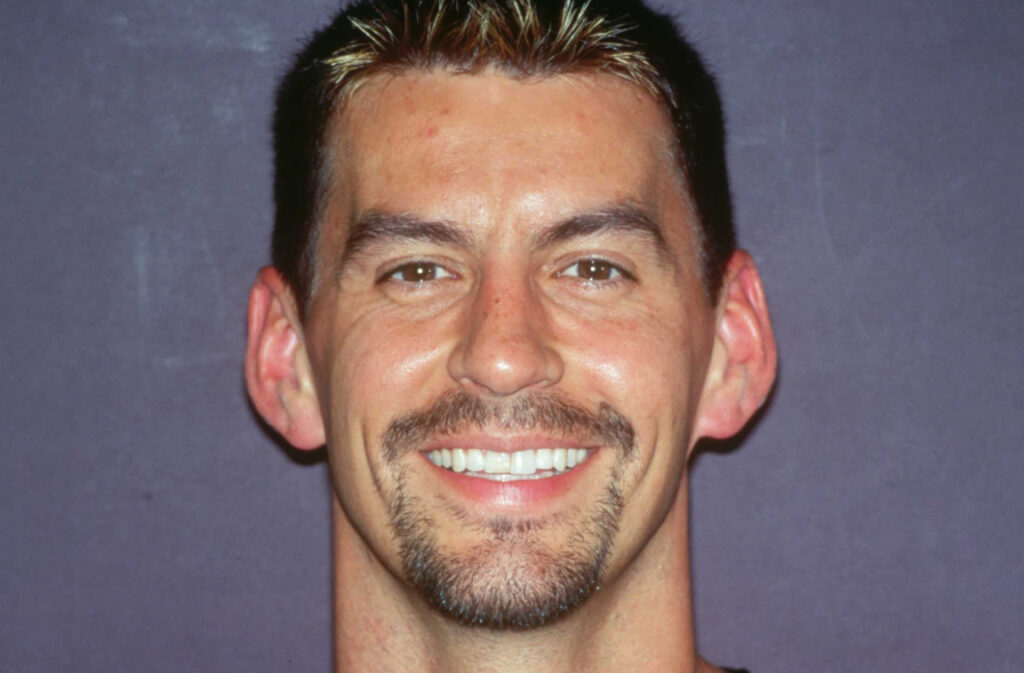Implant Specialist
Monday: 7:30am – 5:00pm
Tuesday: 7:30am – 5:00pm
Wednesday: 7:30am – 5:00pm
Thursday: 7:30am – 5:00pm
Friday: Closed
Why You Need A Dental Implant Specialist
When considering a dental implant, you’ll want to know about potential complications, risks, and how a dental implant specialist helps you avoid them.
If you’ve lost a permanent tooth due to an accident, severe tooth decay, or gum disease, your dentist has most likely talked about dental implants. You want a dentist competent in the restoration of dental implants as well as the surgical placement.
When implants work as intended, they are the best alternative over dentures or bridgework. They are stronger than removable teeth and patients like how comfortable they are. While for most people getting dental implants has a high success rate, it can take multiple procedures and carries risk of complications for some individuals.
Are Dental Implants The Best Tooth Replacement Option?
Generally they are. Your dentist can help you decide if this is the best tooth replacement option for you. Your unique oral history, overall health, and addition diagnostic factors will determine the answer. Empty spaces in your mouth due to missing teeth can create a loss of jawbone density. This in turn may weaken your bite strength, cause sunken facial appearance and trigger related health issues. If you suffer from any of these problems, your dental implant specialist will determine if a tooth replacement option is indeed the best solution for you.
For most people, they assist in the creation of healthy jawbone and muscle growth.
Injury and trauma are significant risks, as your oral sutures will be vulnerable to damage within the first few days following your procedure. Meaning, you need a trusted source to guide you through those days and the commitment to follow his or her instructions.
What Are Potential Procedural Complications of Dental Implants?
There are two main complications that could arise.
- Osseointegration failure: Osseointegration refers to how bone grows around your implant. If you experience the odd time when osseointegration fails, your implant may lack being secure enough to maintain the crown’s position. This is known as dental implant failure. In the case of such failure, the dental implant may loosen or fall out on its own. Some patients may need to have it removed.
- Lack of proper implant placement: Your general dentist could make an error in placing your implant. When location placement problems or incorrect angle of the implant issues surface, it may trigger a complication. A skilled and seasoned specialist ensures that the implant fuses properly with your bone. Improper placements may occur if they are too close to adjacent teeth and generates discomfort. They may even become loose or painful. If this occurs, the solution may be having the implant removed or replaced.
What Are The Overall Risks Of Getting Dental Implants?
- Damage to the Sinuses: People who have severe nasal issues, just had a nose surgery, or are experiencing significant nasal drainage may not be a suitable candidate. Your specialist will understand when sinus damage is a risk factor. The upper jaw is directly under the nasal sinuses. Meaning that implants to replace your top teeth can potentially penetrate into the sinus if the dentist is inexperienced. This may trigger discomfort or possible infection. If this occurs, you will be informed and helped with how to manage the situation.
- Damage to the Nerves: Not everyone’s nerves run the expected way. A skilled pre-assessment reduces risks of implant surgery mishaps that lead to nerve damage. Advanced 3D or CBCT X-ray scans before the procedure to locate your mouth’s nerves. Nerve damage may have lasting impact, so enlisting the services from a specialist is worth it.
- Infection: Common to all oral surgery procedures, dental implant surgery includes a risk of infection. Your dentist will give you instructions for keeping your oral incisions clean as they heal. If unusual pain, swelling, or fluid draining from the incision site occurs, contact your dentist. You may need additional procedures to treat an infection of the gum or bone.
Damage to Neighboring Teeth: In rare cases, implant placement affects the neighboring teeth. If adjacent teeth have minor problems such as decay or root damage, the trauma from oral surgery could add to their decline. Your dentist should examine your other teeth and address any problems before proceeding with your implant.
Which People Types Shouldn’t Get Dental Implants?
Four Groups Of People Are Often Not Good Dental Implant Candidates
Young Ones and Teenagers
Age is one factor that influences dental implant candidacy which a specialist takes into consideration. A child’s jaw continues to develop until approximately age 16-17 for girls and age 18-19 for boys. Up till then, surgically inserting a dental implant post may disrupt normal healthy jaw growth and impede adult teeth from growing into their normal position.
Commonly, when a young person or teenager loses a permanent tooth, dentists recommend alternative treatment options. These may be placing a permanent dental bridge, placing a temporary crown, inserting a spacer, or waiting until the patient’s jaw has matured before completing a tooth implant placement.
Someone Who is Very Elderly (with few exceptions)
During older age, individuals who’ve lost multiple or all of their teeth may be ideal candidates for dental implants; this is more often the case for implant retained dentures. Often, seniors prefer dental implant restorations. However, implant dentists, oral surgeons, and periodontists often pause before recommending implants for people over the age of 85. The very elderly more often have a chronic illnesses to take into consideration. Someone having chemotherapy, radiation, and/or on steroids can increase the odds of implants failing. An experienced specialist is the best individual to determine if that could interfere with your healing process.
The same as risks associated with any surgery type, complications may occur more often as a person reaches old age. After a full oral history and assessment, Dr. Marc Montgomery will cover options, and explain that dental implants are made to last for decades. It’s an investment that patients over the age of 85 sometimes simply don’t want to make. We partner to create an oral health maintenance plan that works for you.
Many an elderly patient is in excellent health, has no outstanding considerations that might interfere with this procedure, and have a strong interest in receiving implants. At this time, a dentist may recommend the procedure and feel confident of a successful outcome. You can experience the benefits of oral implants whether you need a single anterior implant or a full arch implant restorative procedure.
People Who Fail at Proper Daily Oral Health Care
Poor oral hygiene commonly causes unnecessary oral diseases. Often this is the cause behind missing adult teeth in the United States. Ironically, dental implants are ideal for replacing missing dentition, if a patient has not demonstrated an ongoing commitment to improving their oral hygiene, then they may not be a good candidate for the procedure.
The dental implant itself is resistant to tooth decay, but the gum area surrounding the implant is still susceptible to peri-implantitis if the patient lacks careful dental hygiene. If a tooth extraction is involved, and if a bone graft is advised to increase bone density and stimulate more bone growth, you’ll have to wait a while before the next procedure.
People who Smoke or Chew Tobacco
Most dentists will not recommend placing tooth implants for individuals who smoke cigarettes, cigars, or pipes or who have developed a chewing smokeless tobacco habit. Tobacco products contain certain chemicals such as nicotine, carbon monoxide, and hydrogen cyanide that limit the body’s ability to deliver sufficient blood supply to the jaw. The result is the body has less ability to heal properly.
Clinical research indicates that smoking significantly increases chances of dental implant failure. When these high risks present, a specialized implant dentist may determine that it’s best not to perform the procedure. A favorable outcome is important as well as thoughtful consideration of spending the patient’s time and resources. Upon realization of this issue, some people quit the use of tobacco products and prove a sustained long-term commitment to improving their oral health for the procedure.
View our dental implant gallery for examples of excellent outcomes.
What Is The Role Of An Expert Dental Implant Specialist?
A dental expert or specialist who can perform a dental implant surgery is known as an implantologist. Our specialty is to ensure the following when placing implants:
- The patient’s oral health and overall condition make this person a good candidate for success.
- The patient’s bite is correct.
- The position of the jaw and muscles are correct.
- The implants are the right size for the space in the bone.
- Using the proper number of implants to secure teeth and proper placement.
- If multiple implants are used, they are spaced properly across the jaw.
- The posts snap correctly into the dental prosthetic.
- You understand your instructions for implant restoration aftercare.
- Follow up appointments ensure the implant(S) integrate well.
- We partner with manufactures that use trusted, best-in-class materials in their devices to avoid device malfunctions.
About Marc L. Montgomery, DDS
Montgomery Dental Care believes that when it comes to dental implants, the doctor’s experience and on-going training ensure each placement is the best possible and that good candidates are selected. An intern or new dentist at the helm may mean clinical errors. We are committed to cover all “foundational issues”, extra considerations, and will always take your history and expectations into consideration.
Dr. Montgomery practices family, restorative, cosmetic, smile design and laser dentistry with a holistic and thoughtful approach to patient care and comfort. Given that Montgomery has taught at national and local conferences, some people do come to him to get a second opinion before getting a new implant. Patients find that the benefits outweigh the cost of dental implants. We proudly serve patients in Woodbury, MN and neighboring Twin Cities communities.
Look Flawless and Radiant Anywhere You Go!




